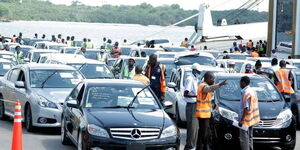The State Department for Immigration and Citizen Services has finally resolved a long-standing issue with the backlog of national identity cards. On August 12, the department resumed the printing of National IDs, a crucial document for many Kenyans.
The Ministry announced that it has cleared the previous backlog, but there remains a staggering number of over 470,000 uncollected cards lying dormant across the country.
The National Registration Bureau (NRB) has managed to clear the previous backlog of National ID applications. As of the latest update, only 1,358 applications are currently awaiting routine processing. The department is expediting the handling of new requests and has significantly ramped up its printing capacity to 32,000 National IDs per day.
This increase in output comes alongside the deployment of additional personnel and the introduction of a 24-hour service dedicated to the production and processing of these essential documents.
The production of National IDs was temporarily halted on July 25 when the High Court issued a conservatory order stopping the issuance of the third-generation ID cards, also known as the Maisha Card.
This court order had placed a significant roadblock in the process, leading to widespread frustration among Kenyans who rely on these documents for various essential services.
Following a successful appeal by the Government, the High Court lifted the conservatory order on August 12, allowing the NRB to resume the printing of new and duplicate National IDs. This decision has come as a relief to many who had been left in limbo due to the halted process.
As of August 26, Principal Secretary Julius Bitok revealed that a total of 476,167 printed National ID cards remain uncollected in NRB registration offices and Huduma Centres across the nation. Nairobi County tops the list with the highest number of uncollected IDs at 55,327.
It is closely followed by Kiambu with 37,708 and Nakuru with 28,581 uncollected cards. Other counties with significant numbers of uncollected IDs include Kisumu (18,529), Mombasa (17,140), Kisii (15,842), Muranga (13,627), Uasin Gishu (13,155), Kajiado (12,533), and Bungoma (12,053).
Bitok urged all applicants who have yet to collect their IDs to visit the registration stations where they submitted their applications without delay. The uncollected cards reflect a broader issue of inefficiency and communication breakdown within the system, exacerbated by the recent legal interruptions.
The disruption in ID card production had far-reaching impacts, particularly for the youth. Since last November, when the specialised security printers used for second-generation IDs were decommissioned, the court order halting the printing of third-generation IDs caused severe delays.
The backlog of applications had surged to over 600,000 by February this year, with new applications increasing by 10,000 daily and an additional 5,000 daily requests for replacement of lost or damaged IDs.
The resulting crisis had significant consequences, particularly for young people who had recently reached adulthood. The delays have led to problems such as the inability to open bank accounts, register new mobile phone SIM cards, and access funding from the Higher Education Loans Board (HELB) for tertiary education.












